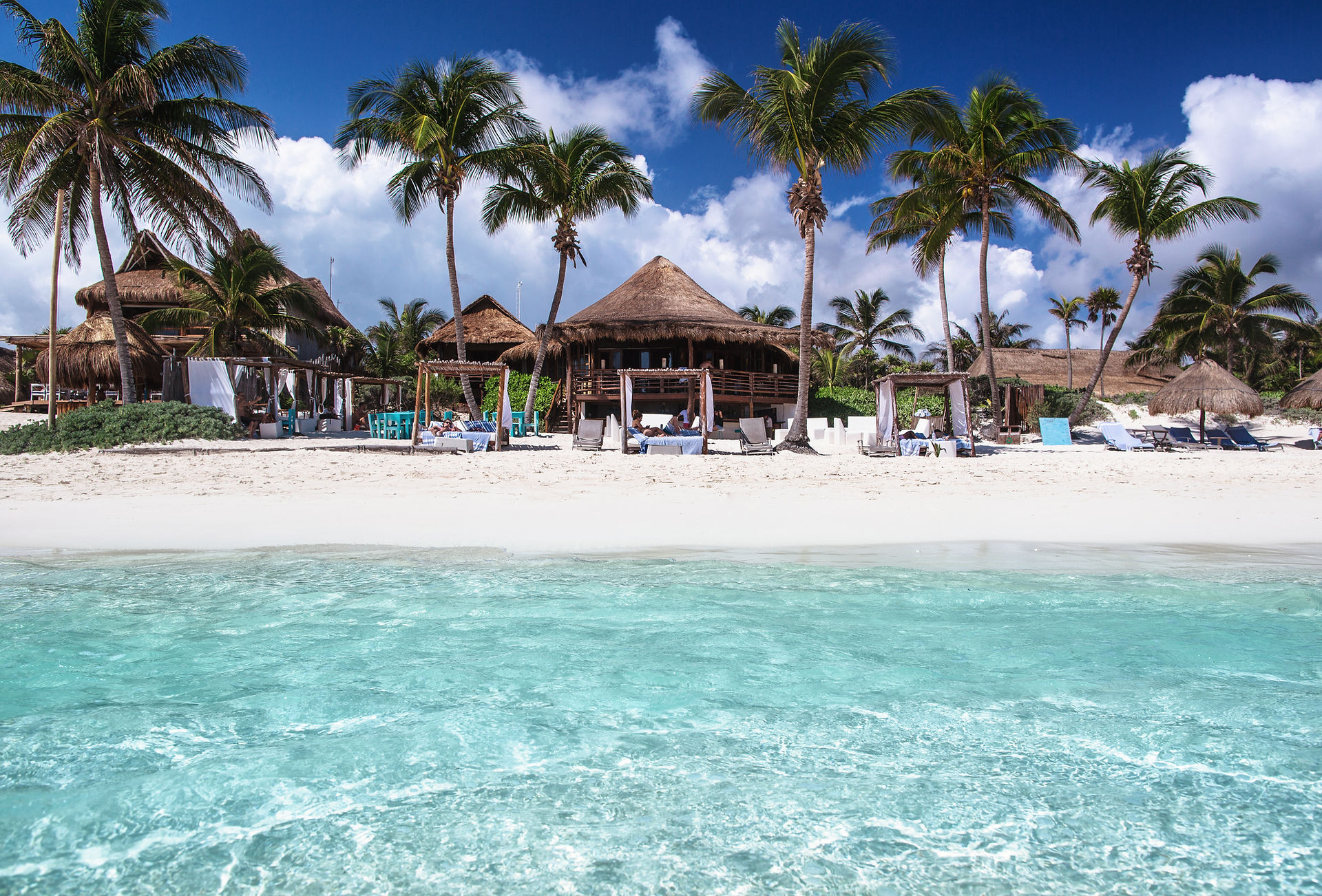Noma Chef’s Next Place to Pop Up: TULUM
- Teal Rao
- 23 nov 2016
- 3 Min. de lectura

René Redzepi was already familiar with hard-shell tacos out of the box, a fairly common product in Denmark, the taco-deficient nation where he lives and runs the influential restaurant Noma. But those aren’t the tacos that changed his life.
Late one night, just about a decade ago, Mr. Redzepi arrived hungry in Mérida, Mexico, and stopped on the street for tacos al pastor — hot, fresh corn tortillas piled with thinly sliced pork that had been browned on a vertical spit. The meal was quick, simple, but skillfully executed, and it made an outsize impression on the chef.
“The next day, I started delving into it,” Mr. Redzepi, 38, said in an interview last week in New York. “Tortillas led me to masa. Masa led me to nixtamalization. I realized, there were thousands of years of history in every bite.”
Since then, he has taken vacations to Mexico with his wife and children every year. Next April, for more than a month, his entire Copenhagen-based staff of about 90 people will join him to run a Noma pop-up in Tulum, inspired by the broader scope of Mexican cuisine.
The restaurant, Noma Mexico, will serve dinner five nights a week at $600 a person. (The high price, Mr. Redzepi said, is meant to ensure that travel, accommodation and salary costs are covered for his staff for the duration of the pop-up, which has no outside sponsors.) Reservations can be made on the restaurant’s website, starting Dec. 6 at 10 a.m. Eastern time.
Unlike the other two extended pop-ups Mr. Redzepi has overseen — the first in Tokyo in 2015, the second this year in Sydney, Australia — the new project in Tulum is a joint enterprise. His creative partner is Rosio Sanchez, who worked as Noma’s pastry chef and, later, in the restaurant’s test kitchen.
Ms. Sanchez, 31, was raised in Chicago by parents from Mexico. She traveled through Mexico as a child to visit extended family, and as a chef to research the cuisine before opening her Copenhagen taco shop, Hija de Sanchez. There, she imports corn from Oaxaca to grind, soak and process her own masa for fresh, flexible tortillas, a rare delicacy in Denmark.
For the next two weeks, Ms. Sanchez will travel with Mr. Redzepi and a handful of other cooks through the Yucatán Peninsula — a regional focus of Noma’s menu — tasting ingredients to supply the Tulum restaurant, observing new techniques and commissioning artisans to produce glassware and ceramics.
“We’ll try some exotic fruits, and we’re definitely going to make cochinita pibil,” said Ms. Sanchez, referring to the habit-forming Yucatecan dish of pork rubbed with achiote paste and sour orange juice, slow-cooked in a stone-lined pit.
This rich jumble of influences will weave its way into Noma’s menu, though Ms. Sanchez and Mr. Redzepi can’t say how just yet. Noma, one of the world’s most acclaimed restaurants, is set to close soon and reopen later in 2017, with a new menu, in a new building on the outskirts of the city’s Christiana neighborhood.
They won’t start experimenting with dishes in the Tulum kitchen until six weeks before that restaurant opens.
What they do know, though, is that the Noma team will add at least four local cooks to produce fresh tortillas in an outdoor kitchen outfitted with grills and two comals, cast-iron griddles. “And we’ll cook everything over fire,” Mr. Redzepi said.
The entire dining room, like many restaurants in Tulum, will also be outdoors — in this case, on the cleared edge of the jungle. The foundation for the new structure is being laid near La Zebra, a small hotel where Mr. Redzepi and his family have stayed.
Though the restaurant will keep with Noma’s established fine-dining style. it will be a bit looser than the pop-ups in Sydney and Tokyo: Waiters will deliver their brand of polished service in shorts and flip-flops, Mr. Redzepi said.
“And we won’t be open at lunchtime,” he said, “because at lunchtime, let’s face it, everyone will be at the beach.”

























Comentarios